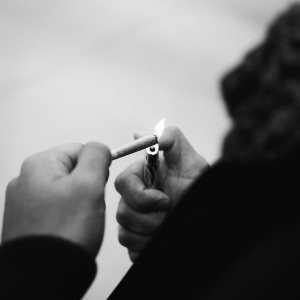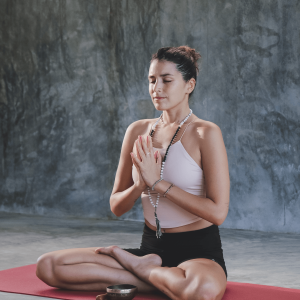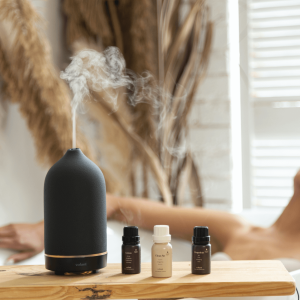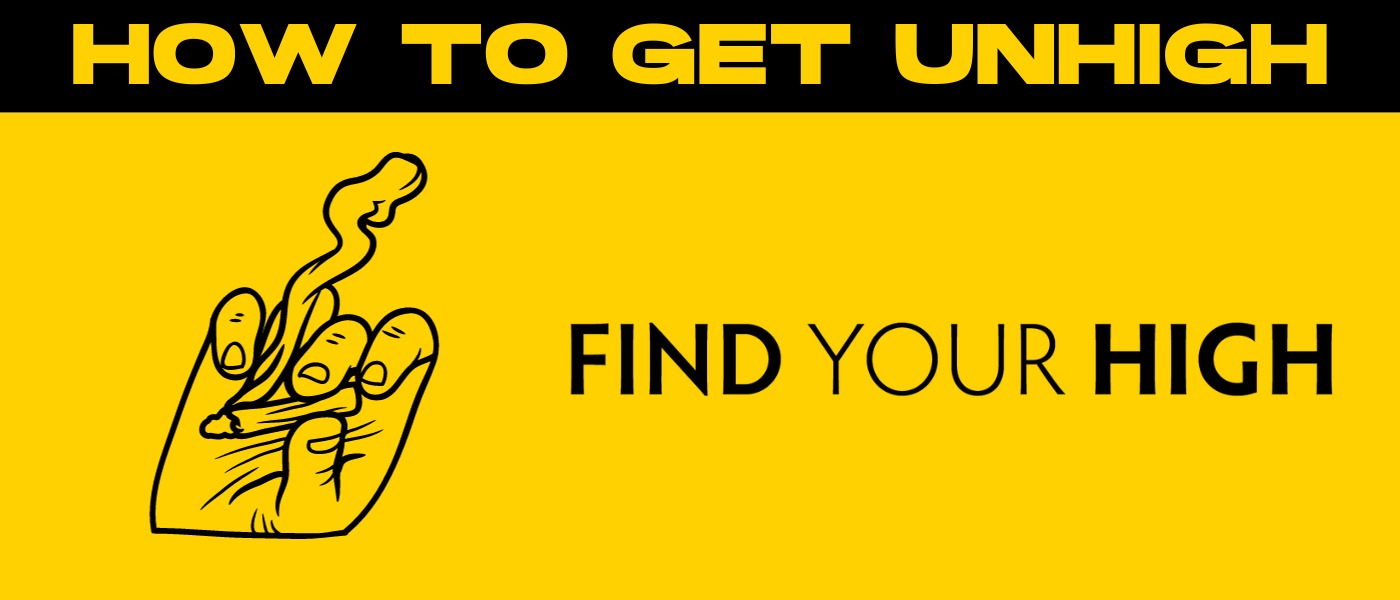So you’re stuck in the middle of an uncomfortable cannabis experience and wondering how to get unhigh. We’ve all been there… Stick with us, and we’ll help you return to normal.
In the world of recreational or medical cannabis use, ‘being high’ refers to the altered state of mind caused by the potent psychoactive properties in cannabis. Cannabis users typically define ‘being high’ by elevated or euphoric moods, as well as feelings of deep relaxation and calmness.
Knowing how to get unhigh – that is, to sober up and get back to normal cognition – is super important for staying safe and in control.
In this blog, we’ll educate you about the nature of being high, give you practical tips on how to get unhigh, and above all, promote safe and responsible habits when it comes to consuming cannabis products. Ready to begin? Let’s go.
Understanding the High
A wide variety of cannabis products exist, each with distinct effects. Edibles, for instance, often produce a more intense and longer-lasting high compared to smoking or vaping.
Meanwhile, tinctures and oils allow for more controlled dosing, which may be beneficial for those who tend to consume too many edibles.
The type of strain also matters: sativa strains are known for their uplifting and energetic effects, while indicas tend to be more relaxing and sedative. Choice between indica, sativa, or hybrid strains is entirely individual.
Being high can manifest in several ways, with common signs and symptoms including elation, altered sensory perception, increased heart rate, dry mouth, and red eyes.
Some people might also experience anxiety symptoms or paranoia, especially with higher doses or more potent strains.
It’s essential to remember that everyone’s reaction to cannabis is unique and can be influenced by various factors such as tolerance, individual physiology, and their chosen method. With that being said, discovering ‘how to get unhigh’ is equally as individual as preference or tolerance when consuming cannabis.

How long does a high typically last?
The duration of a high can vary widely, depending on the cannabis consumed, the method of cannabis consumption, and the individual’s metabolism.
Typically, effects from inhalation (smoking or vaping) can be felt within minutes and may last anywhere from 1 to 3 hours.
On the other hand, edibles can take up to two hours to kick in but can last for several hours, sometimes even up to 8 hours. And if you’ve ever experienced a bad edibles high, then you know that just a few hours can feel like an eternity.
Staying calm and informed about cannabis use is paramount. Understanding the potential effects and how your body reacts can help ensure a safer and more enjoyable experience. If you’re new to cannabis, start with low doses and listen to your body.
Remember, it’s okay to step back if you feel uncomfortable. Staying informed about the different types of products and strains can also help you choose the best option for your individual needs and expectations.
The Importance of Safe Spaces
Creating a comfortable smoking environment is crucial. This typically involves curating an area or situation where you can feel at ease and free to express yourself without fear of judgment or harm. This could be a physical location, like a cozy, quiet room, or an emotional state, such as a group setting where open dialogue is encouraged.
Creating safe spaces to smoke is all about eliminating triggers or stressors. By doing so, we can prevent unnecessary anxiety, disturbance, or emotional discomfort. This might involve keeping conversations light and avoiding sensitive topics, or organizing physical spaces to minimize noise and clutter, which can be stressful for some people.
Having a trusted friend or support person is also an essential aspect of safe spaces. Experiencing a bad high may occasionally trigger anxiety symptoms, but the presence of a trusted individual can provide reassurance and a sense of security. Additionally, they can offer emotional support and help maintain the safe environment.
Hydration and Nutrition to Get Unhigh
Hydration and nutrition play a crucial role when it comes to sobering up or getting unhigh.
The human body needs sufficient fluids and nutrients to efficiently process and eliminate toxins, including those from substances like marijuana and too much alcohol.
How to Get Unhigh: Staying Hydrated
Staying hydrated is one of the most effective ways to get unhigh. Drink plenty of water to help flush out the toxins from your body. Additionally, this can alleviate some side effects of being high such as cottonmouth or dry mouth.
However, avoid drinking too much water in a short time span as it can lead to water intoxication.
How to Get Unhigh: Eating a Balanced Meal
Eating a balanced meal is another key strategy when learning how to get unhigh.
Consuming healthy foods, particularly those rich in vitamins, minerals, and other essential nutrients, can boost your body’s ability to metabolize the substance you’ve consumed. Foods high in fiber are particularly beneficial as they can help to absorb and facilitate the elimination of toxins while minimizing the uncomfortable feelings associated with a bad high.
How to Get Unhigh: Avoiding Excessive Sugar and Caffeine
While you might feel inclined to consume sugary or caffeinated drinks to feel more alert, these can actually prolong the process of getting unhigh.
Excessive sugar and high doses of caffeine can interfere with your body’s ability to metabolize substances, ultimately prolonging the effects. Therefore, it’s best to stick to water and balanced, nutrient-dense meals when aiming to sober up.
Relaxation Techniques to Get Unhigh
If you’re looking to take the edge off an intense high, trying out some relaxation techniques can be super helpful. Here are a few methods that can help you restore your balance:
1. Deep Breathing Exercises
Deep breathing exercises are an effective relaxation technique to help calm your mind and body. The idea behind deep breathing is to focus on your breath, taking slow, measured inhales and exhales.
This mindfulness practice can divert your attention away from the high and towards the rhythmic pattern of your breathing, helping to ease any anxiety or tension you may be feeling within your physical self.
While deep breathing may not be the ultimate healing agent, it’s an excellent place to start.

2. Meditation and Mindfulness
Meditation and mindfulness are also useful practices when experiencing an intense high.
By focusing on the present moment and accepting it without judgment, you can help alleviate feelings of discomfort or overwhelm.
Whether you choose a guided meditation or simply sit in silence, the act of quieting your mind can help lessen the intensity of too much cannabis.
3. Listening to Soothing Music
Music has a profound effect on our mood and emotions. If you’re feeling too high, try putting on some calming music. We’d suggest choosing tracks with a slow tempo and soothing melodies.
As you listen, allow the music to wash over you, grounding you back to reality and helping to mitigate the intensity of your high.
Physical Activity to Get Unhigh
Incorporating blood pumping physical activity into your routine can be a highly effective strategy when you’re feeling overly high.
- Going for a walk or light exercise. Going for a walk or engaging in light exercise can help metabolize the THC (the primary psychoactive compound of cannabis) in your system. Naturally, this reduces the intensity of your high.
- Yoga or stretching. Similarly, yoga or stretching exercises can be beneficial, providing a calming effect and helping you regain control of your mental and physical state.
- Diverting energy in a positive way. Finally, by diverting your energy into positive activities, you can manage and mitigate the unwelcome side effects of a too-intense high.

The Importance of Sleep and Rest
Rest is a crucial aspect of recovery when you’ve consumed too much cannabis. Cannabis physically affects the body in a number of ways, but rest and recovery allows your body to metabolize the active compounds in cannabis.Plus, sleep gives your body and mind the essential break it needs to recharge and get back to normal.

Taking control of your environment can really improve your sleep quality when you’re feeling a bit wired. This means finding a quiet spot, dimming the lights, and keeping the room at a comfortable temperature in order to better regulate your own body temperature.
Oh, and don’t forget cozy bedding and a clutter-free space, both of which create a relaxing atmosphere that’s perfect for unwinding and getting some shut-eye.
In some cases, natural sleep aids may be necessary to help you get the rest you need. Chamomile tea, for example, is known for its calming properties and can help in inducing deep sleep too.
Similarly, aromatherapy, particularly with calming essential oils like lavender, can have a soothing effect and promote deep sleep. So when in doubt, smell essential oils, right?

Note that it’s important to always consult with a healthcare provider before starting any new sleep aid, even if it is natural.
Distraction and Engagement
One of the most effective ways to manage the feeling of being too high is to engage in hobbies or activities that can distract and ground you.
The activity doesn’t have to be intense; it could be as simple as drawing, painting, or even doing a puzzle. These activities can help divert your mind, provide a sense of control, and gradually bring your focus away from your heightened state.
Movies and books can also be a great escape when you’re feeling too high. They offer a welcome distraction, immersing you in a different world and providing a narrative to follow that can help distract you from any unpleasant feelings. Be sure to choose a genre that you find comforting or entertaining, and allow yourself to become absorbed in the story.
Keeping your mind occupied is crucial when you’re too high. This can be achieved by engaging in conversation with a friend, listening to music, or even exploring nature.
The goal is to fill your mind with other, more pleasant stimuli to distract from any discomfort or anxiety that may accompany a high. Remember, the feeling is temporary and engaging your mind in other activities will help time pass more enjoyably.
Over-the-Counter Remedies
Over-the-counter (OTC) remedies can be potentially beneficial in alleviating the symptoms associated with being excessively high.
Substances like CBD oil are believed to counteract some of the effects of THC, thus reducing the feeling of being high.
Similarly, certain OTC antihistamines may also help in managing symptoms like anxiety and paranoia.
The Potential Use of Over The Counter Remedies
If you find yourself feeling too high, don’t worry! There are several over-the-counter remedies that can help ease your discomfort. For instance, CBD oil can counteract the psychoactive effects of THC and THCa, the non-psychoactive precursor to THC, helping to reduce the intensity of your high. Additionally, antihistamines may help manage anxiety or paranoia associated with overconsumption.
Also, remember that staying hydrated and eating high-protein foods can support your body’s metabolism of THC, potentially helping to bring you back to a more comfortable state.
Cautions and Guidelines for Over The Counter Usage
While OTC remedies may be helpful, it’s crucial to use them responsibly.
Overdosing on antihistamines, for example, can lead to severe side effects.
It’s also important to remember that reactions to cannabis can vary significantly across individuals, and what works for one person may not work for another. Always consult a healthcare professional to ensure safe and appropriate use of any remedy.
Practice Time and Patience to get Unhigh
When it comes to sobering up, it’s crucial to understand that time is often the best remedy. Just like they say, “time heals all wounds,” it also helps diminish the feeling of being high.
Our bodies naturally metabolize and filter out substances, but this process can’t be rushed. So, it’s important to be patient and give your body the time it needs to get back to normal.
Along with patience, it’s equally important to avoid risky behaviors while waiting to come down.
Impaired judgment or coordination can lead to accidents and injuries, so it’s best to stay in a safe and comfortable environment until the effects wear off. Avoid driving, operating heavy machinery, or doing anything else that could be dangerous.
With time and patience, you can learn how to get unhigh safely and responsibly.
Seeking Professional Help
It is crucial to recognize the signs when you may have overindulged in a super anxiety-inducing strain and need medical help. Symptoms include:
- Severe anxiety
- Hallucinations
- Extreme confusion
- Paranoia
- Panic attacks
- Fast heart rate
- Delusions
- Increased blood pressure
- Severe nausea or vomiting
- Chest pain
- Any situation where the high is causing distress or danger
These above symptoms are all warning signs that professional medical assistance is required. Never hesitate to ask for help if you’re unsure; it’s always better to be safe than sorry.
The Importance of Being Honest With Healthcare Professionals
Being truthful with healthcare professionals about your cannabis usage is vital for effective treatment.
Doctors and nurses are there to help, not judge. They need accurate information to make the right decisions about your treatment.
Remember, patient-doctor confidentiality laws mean that you can be open about your cannabis use without fear of legal repercussions, especially in states where marijuana is still recreationally or medically illegal.
Creating an open and honest dialogue with your healthcare provider will ensure you receive the best possible care.
Summary
In conclusion, managing the effects of consuming too much THC is as important as enjoying its benefits.
Key strategies for getting unhigh include hydration, having a good meal, taking a nap, or engaging in relaxing activities like yoga or meditation. It’s also vital to remember that everyone’s body reacts differently to cannabis; what works for one person may not work for another.
Additionally, we cannot overemphasize the importance of responsible cannabis use. Understanding your limits and starting with small doses if you’re a beginner is crucial to avoid unpleasant experiences. Remember, the aim is to enjoy the experience, not push your boundaries to discomfort.
Above all, safety and self-care should be the top priority. Make sure to create a chill atmosphere, have a trusted person on standby if it’s your first time smoking weed, and remember that the effects of cannabis are temporary. Just listen to your body and prioritize your well-being.
Frequently Asked Questions
When it comes to dealing with the effects of being high, it’s completely normal to have lots of questions.
That’s why we’ve put together a Frequently Asked Questions (FAQ) section to clear things up.
Keep reading while we cover all the common queries and concerns about how to come down from a high safely and efficiently.
1. How do you get rid of too high?
If you’re feeling too high due to the consumption of cannabis, there are several strategies that can help. First, try to stay calm and remind yourself that this feeling is temporary.
Drinking plenty of water and eating light snacks can help, as can simple distractions like watching a movie or taking a walk.
If you’re in a safe and comfortable place, taking a nap can also help you come down. It’s important to ensure you’re in a safe environment and, if needed, reach out to someone you trust for support.
2. How do you get Unhigh from a hybrid?
Getting unhigh from a hybrid, or reducing the effects of a hybrid strain of cannabis, primarily involves allowing your body time to metabolically process and eliminate THC.
Drinking lots of water, consuming food, and getting a good night’s sleep can help expedite this process.
Certain natural remedies, like lemon peel or black pepper, are also said to help alleviate some of the psychoactive effects. However, it’s always recommended to consume responsibly and be aware of your tolerance levels.
3. What is the quickest way to get UN high?
There’s no instant cure to sober up from a marijuana high, but there are a few steps you can take to lighten its effects. For starters, staying hydrated and eating light meals can help metabolize the THC faster. Also, try to sleep it off if possible. Engaging in relaxing activities like a warm bath, meditation or listening to calming music are also all beneficial.
And finally, remember it’s best to avoid driving or operating heavy machinery while under the influence as this can heighten paranoia and put yourself and others at risk.
4. How long can it take to get Unhigh?
The duration it takes for one to sober up, or “get unhigh”, varies based on several factors including the amount and potency of the substance consumed, the individual’s metabolism, and their level of tolerance.
On average, effects may start to diminish after two to three hours for most people. However, residual feelings can linger for several hours more depending on how much cannabis was consumed.
It’s crucial to remember that even when the most extreme effects fade, impaired judgement or coordination may persist. Always prioritize safety and avoid operating vehicles or heavy machinery until fully sober.
5. What is the best thing to drink to get unhigh?
When attempting to sober up from a cannabis high, it is crucial to prioritize hydration. Water, being the optimal choice, plays a key role in eliminating toxins from the body through its cleansing properties.
Additionally, you may want to drink hot tea. Herbal or green tea can offer valuable assistance due to their soothing effects.
On the other hand, it is advisable to refrain from consuming caffeinated beverages, as they have the potential to heighten heart rate and potentially worsen any accompanying feelings of anxiety or paranoia.
It is important to note that although drinking fluids will not immediately eliminate the high, it can expedite the body’s natural detoxification process. By staying hydrated, you are providing your body with the necessary support to recover effectively after consuming more cannabis than usual.

 Rewards
Rewards





